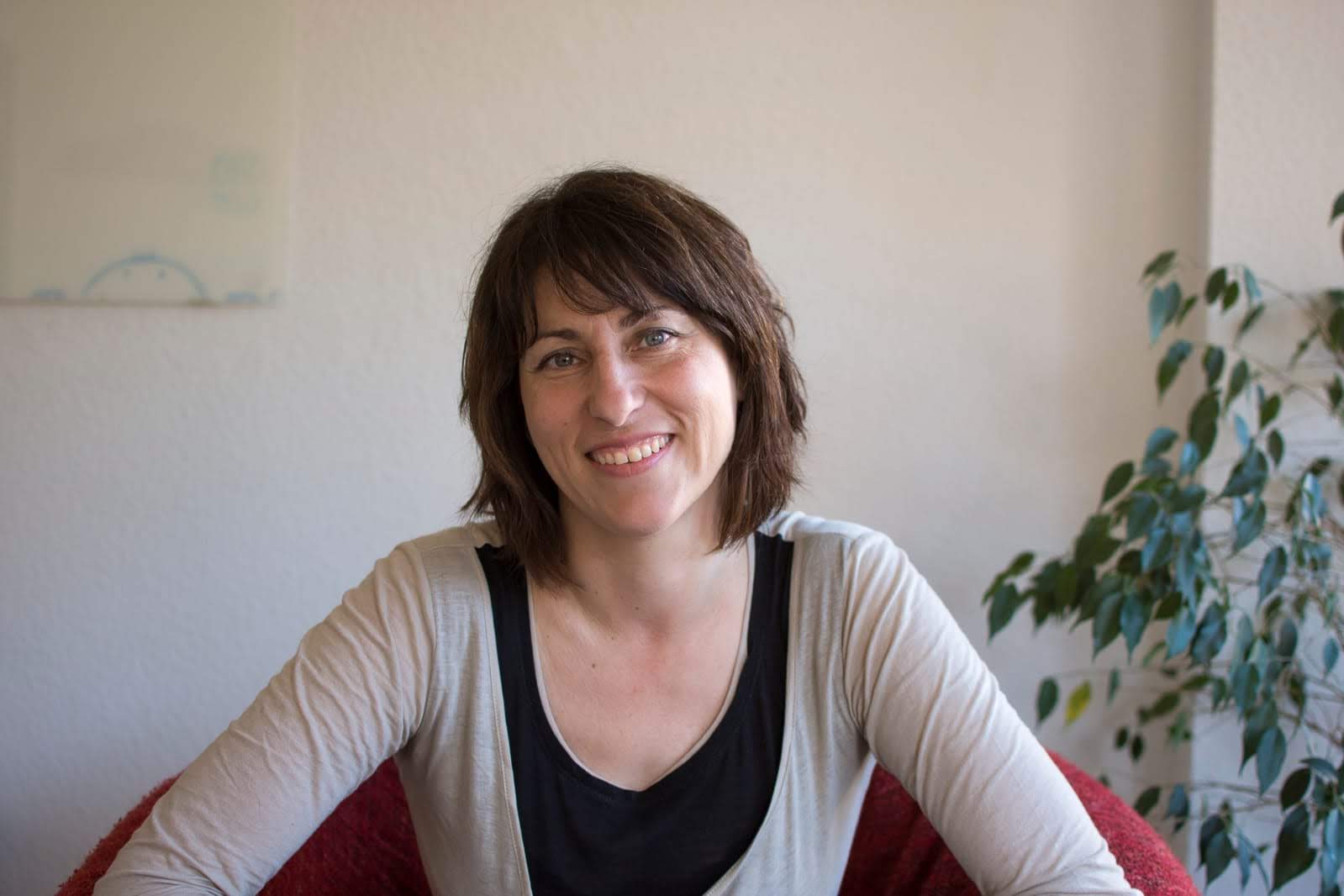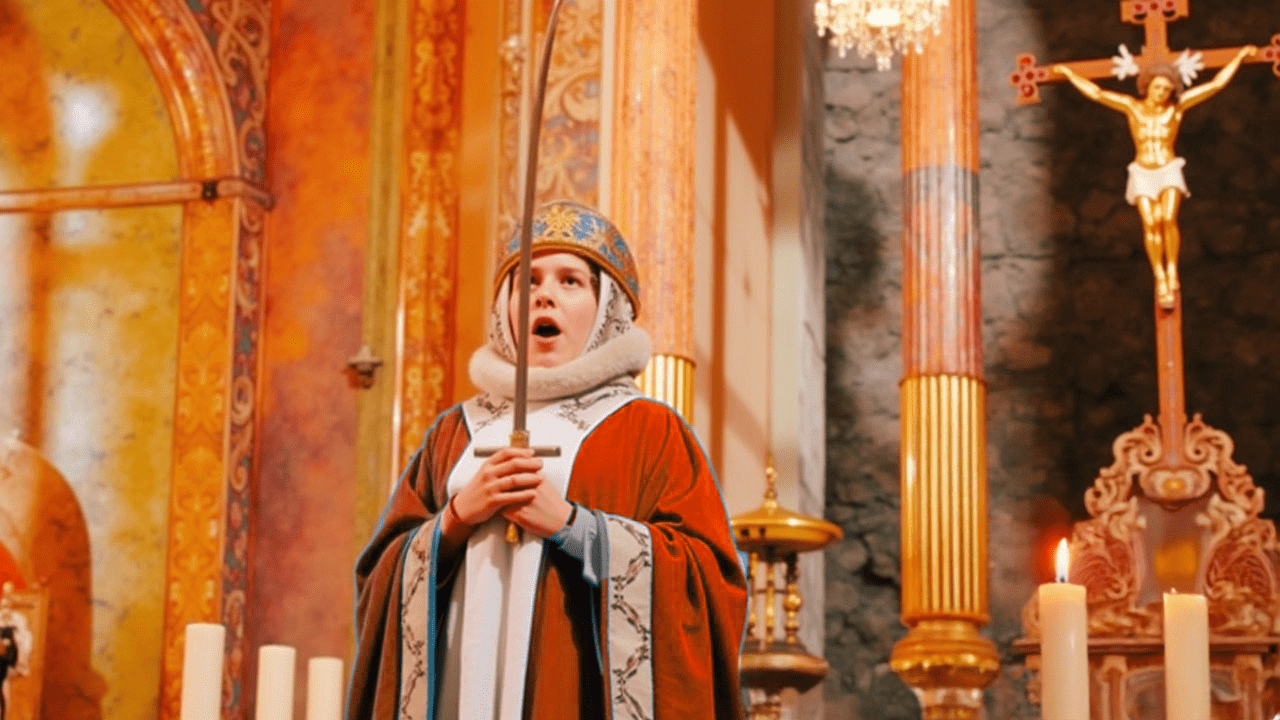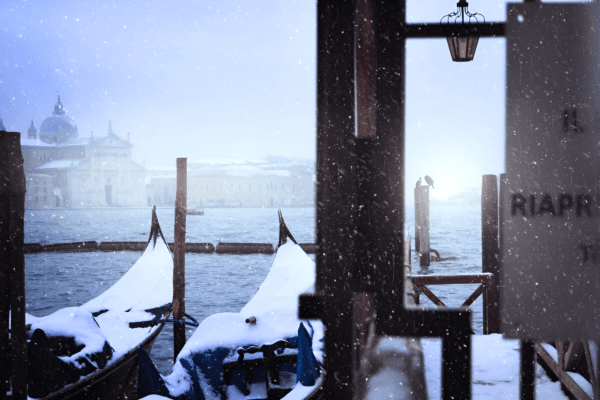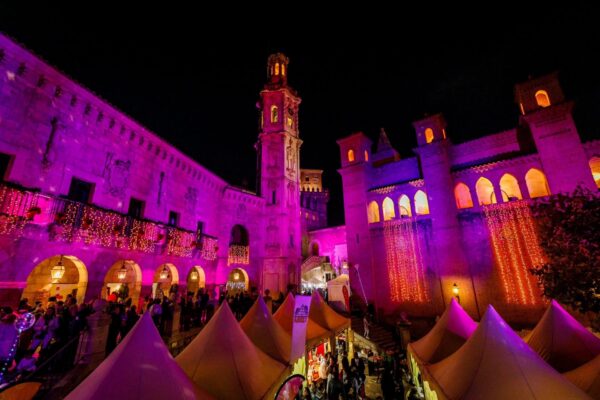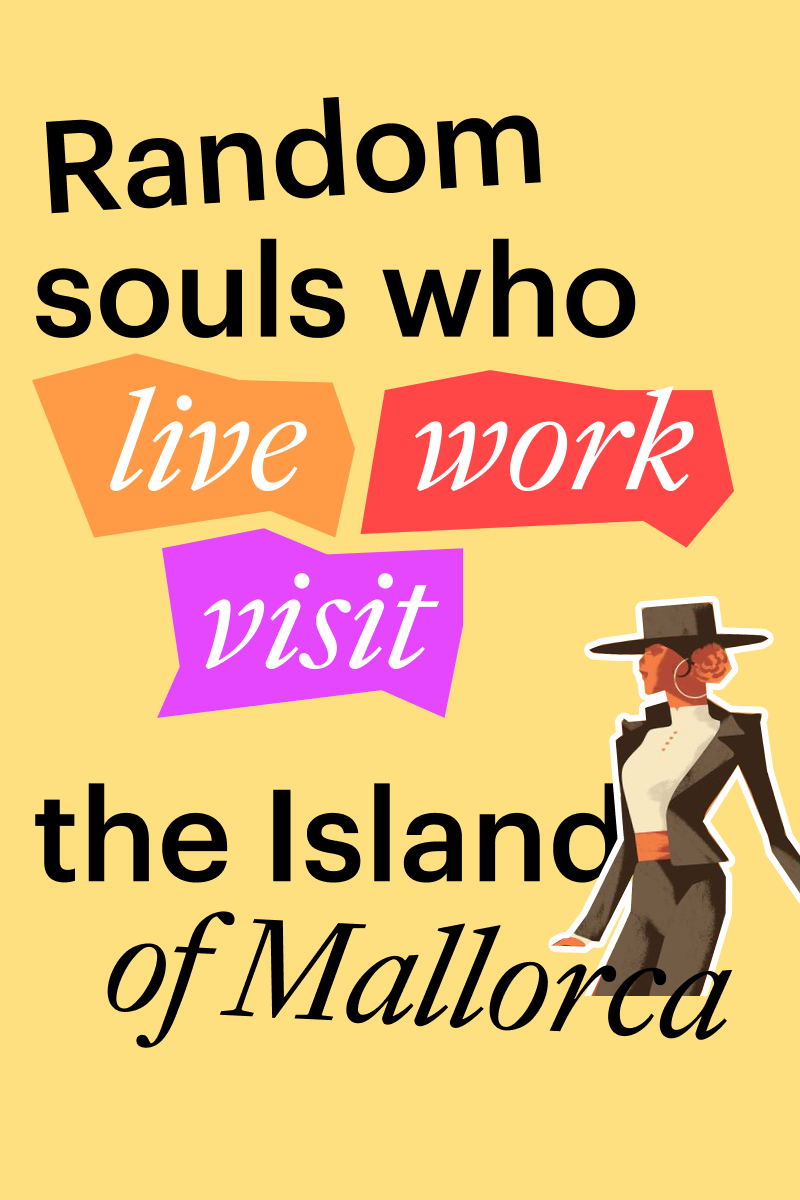Meet Mercedes Cimas, a dedicated psychologist whose career spans from counseling prisoners to helping parents and children navigate the challenges of family life. In this candid interview with “Humans of Mallorca”, she shares the pivotal moments of her life and career, from her early days in Madrid to finding balance and purpose on the tranquil island of Mallorca.
Tell us a bit about your background.
I was born and raised in Madrid, where I later studied psychology at the Universidad Autónoma. Growing up, I always knew I wanted to pursue a career in helping others — psychology, social work, or even philosophy or sociology were all interests of mine. My decision to focus on psychology felt like a natural fit.
What influenced you growing up?
My father passed away three days before I was born, so I was raised by my mother alongside my two sisters and brother. My mother worked tirelessly to support us, and from her, I learned resilience, how to take action in tough times, and the value of humor and enjoying the little things in life.
Why did you move to Mallorca?
About 20 years ago, I realized I no longer felt at home in a big city like Madrid. I wanted a quieter life without giving up access to opportunities. Mallorca struck the perfect balance, offering the tranquility of a village with the amenities of a city.
What led you to become a psychologist?
From my first year of studying psychology, I was captivated by the profession. Early in my career, I worked in a prison, helping inmates with addiction issues. While it was intense and rewarding, it was also frustrating because meaningful, lasting results were difficult to achieve. Over time, I transitioned to private practice and found my passion in working with children and adolescents, helping to improve family dynamics.
What’s the most fulfilling part of your job?
I love helping families navigate the challenges of adolescence. Seeing parents rebuild their bonds with their children and find joy in family life is incredibly rewarding. Often, conflicts between parents and teenagers are poorly managed, leading to significant strain, and I find it fulfilling to help restore those relationships.
What’s the most common issue people come to you with?
Parents are often worried about their children. They worry about whether they are doing well with their education, how to stop having daily conflicts, and everything related to childhood and adolescence. In Mallorca, the housing crisis is a huge problem: couples who want to go their separate ways are forced to continue living together and teenagers are thus exposed to their conflicts.
What’s the most unusual case you’ve handled?
I once worked with a 16-year-old boy who came to me with a moral dilemma. He only wanted one session to resolve it. It was fascinating to see such maturity in someone so young.
What does a typical day look like for you?
Every day is different. I usually wake up early to have a bit of quiet time before my daughter gets up. After dropping her at school, I might head to my office or the gym, depending on my schedule. My workday includes everything from seeing patients to giving talks at schools or training sessions for professionals. Balancing my work as a psychologist with being a mother is important to me, so I organize my days accordingly.
What was your first major success as a psychologist?
My first patient was a 20-year-old woman with anorexia, a very challenging case. I wasn’t sure I could help her, but years later, she still greets me on the street, holding the hands of her two children. Knowing I played a role in her recovery is deeply meaningful.
What was the hardest moment in your career?
The death of a patient from a heroin overdose. It’s something that stays with you.
Have you faced personal challenges that shaped you?
When my daughter was born prematurely, weighing less than a kilo, she spent three months in an incubator, one of them in intensive care. It was terrifying, but I drew on my resilience and focused on the present moment. My mother, friends, and work helped me through those difficult times.
What’s your perspective on Mallorca’s tourism challenges?
Mallorca is a beautiful place, and people should have the chance to visit, but tourism needs to be managed better. Overcrowding affects both locals and visitors. I’m not sure how to solve it—that’s not my area — but finding a balance is important.
What sets Mallorca apart from Madrid or Barcelona?
It’s not about better or worse—it’s about what you’re looking for. Mallorca offers a quieter, more relaxed lifestyle, though it lacks some of the cultural and educational opportunities you find in larger cities.
What’s next for you?
I want to keep enjoying both my work and my personal life. Balance is key, especially when you’re as passionate about your job as I am.
What’s your life philosophy?
There’s a quote on my office door that sums it up: “Happiness is wanting what you already have.” I focus on appreciating what I’ve got and raising my daughter to be a kind and compassionate person.
How do you see Mallorca in 2030?
Unfortunately, I think summers will be even hotter, and the tourism issue might still be unresolved. I’d love to see less crowded beaches in summer and more cultural options for residents and visitors alike.
Text by Anastasia Barysheva
